SEO for Jewelers
Learn how to rank higher on Google and attract more customers for your jewelry business.
Where does someone go if they want to put a ring on it? The answer: Likely Google.
Your potential customers are using Google to search for engagement rings, wedding bands, and custom jewelry. If you're not on the first page of Google, you're losing out on plenty of clients.
Keep reading if you want to rank your website higher on Google.
Local SEO
People who search for local businesses like jewelers will usually see two types of search results: regular and "map pack."
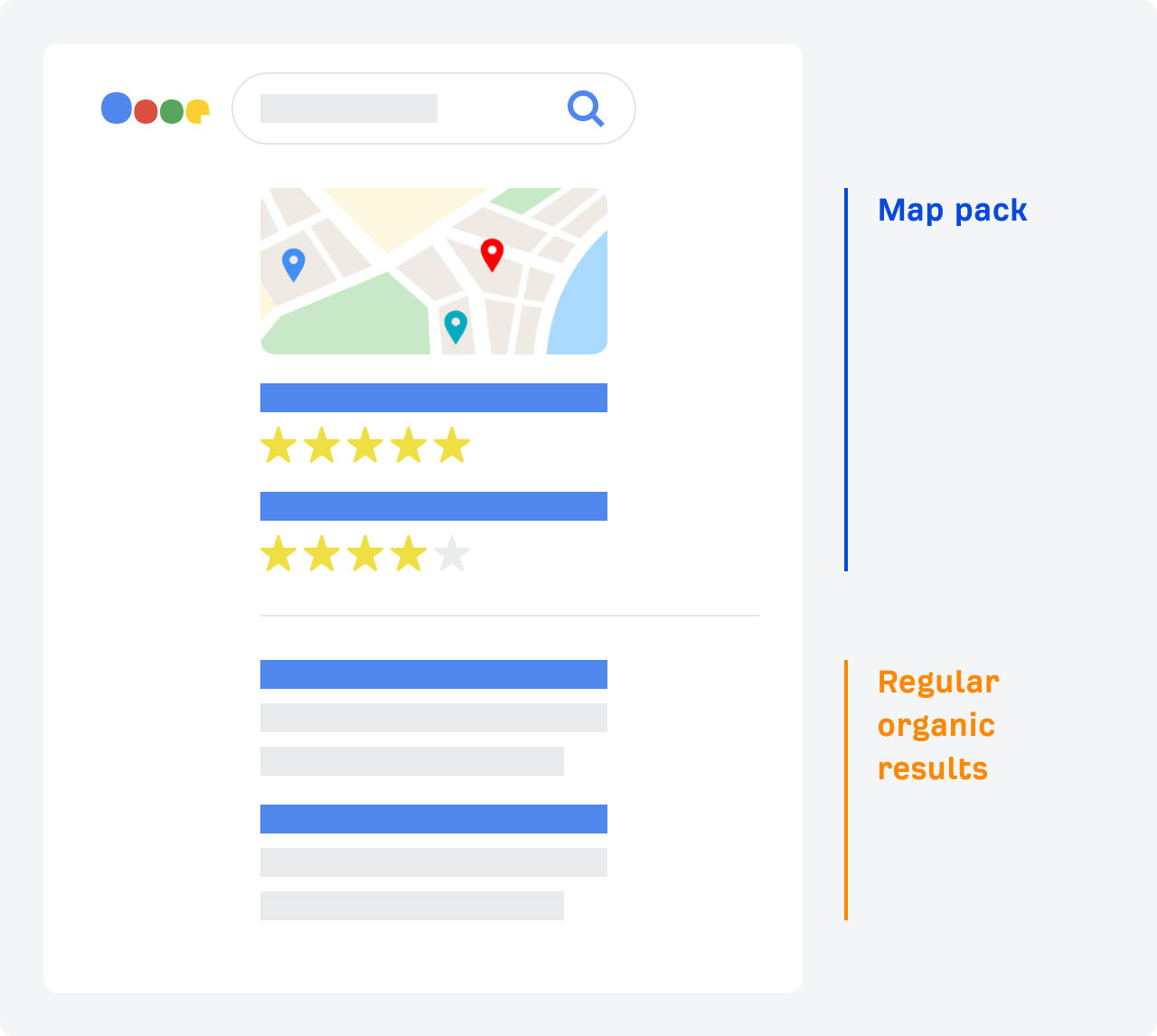
You can rank in both of these types of results, making it possible to show up twice on the first page of Google.
To rank in the regular organic results, you'll need to optimize your website. That's what the rest of this guide focuses on.
To rank in the "map pack," you'll need an optimized Google Business Profile.
Get a free Google Business Profile
Head over to google.com/business to set one up.Optimize your profile
Fill in as much as you can, including the types of jewelry and watch services you offer.Get reviews
Reviews help you rank higher, so ask customers to review your business.
Learn more: Local SEO: The Complete Guide
Keyword research
People won't always type "jeweler" into Google when they need one. Some will search for more specific services like custom jewelry design or ring resizing, and others will search for solutions to problems like how much should an engagement ring cost.
Unless you rank for these keywords, you're missing out on potential customers.
To find jewelry-related services and topics people are searching for, you'll need a keyword research tool like Ahrefs' Keywords Explorer. These tools pull keyword ideas, estimated monthly search volumes and other SEO metrics from a database of billions of keywords.
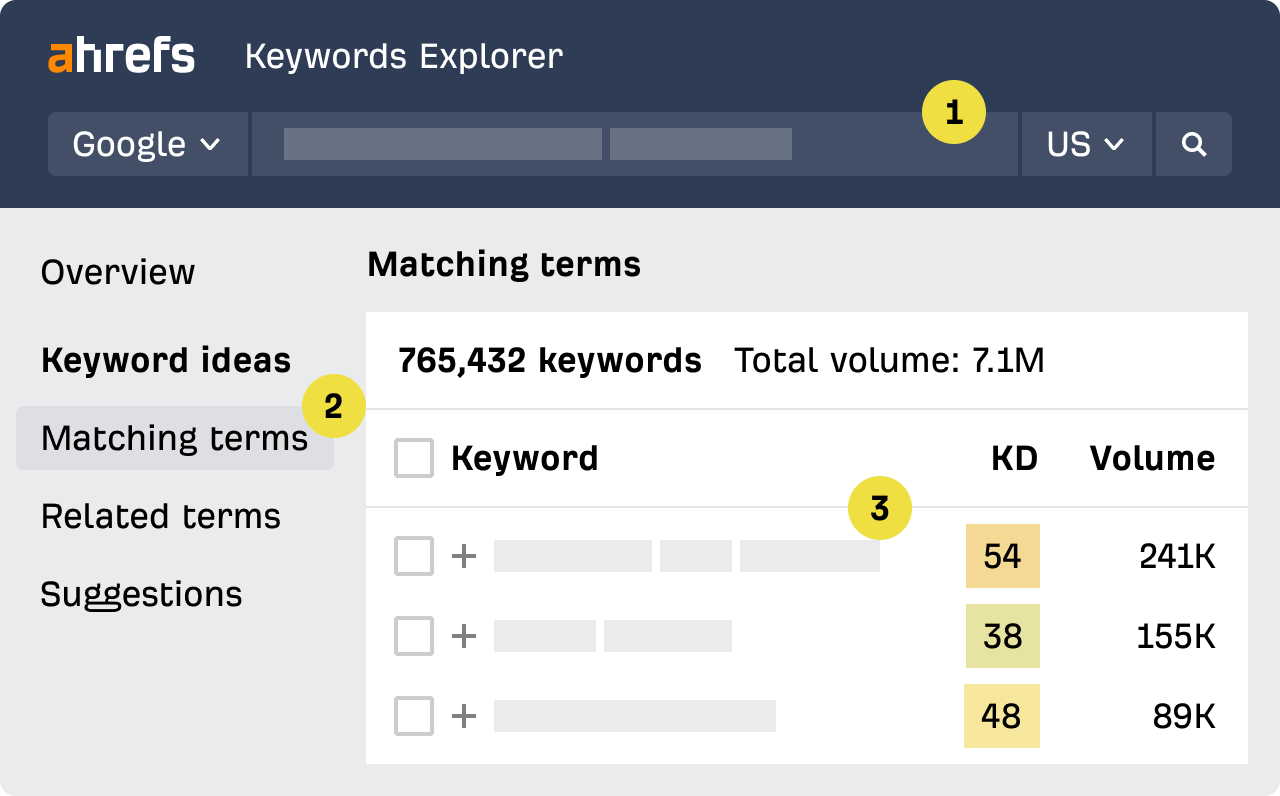
Enter a few industry-related "seed" phrases
Example: jewelry, engagement ring, wedding band, watch repairChoose a keyword ideas report
Example: "Matching terms" shows all ideas containing your seed keywords.See keyword ideas
Example: "How much should an engagement ring cost" gets an estimated 4.3k monthly searches in the U.S.
Learn more: How to Do Keyword Research for SEO
Content creation
Knowing what people are searching for is useful. But unless you create pages to target those terms, there’s little point in doing keyword research.
For example, there are an estimated 25K monthly searches in the US for "custom jewelry."
Given that your homepage will be more of an overview of what you do, it's unlikely to rank for this term. It's more likely to rank for broader, more popular terms like "jeweler" or "jewelry services."
The same goes for questions like "how to clean engagement ring.” If you want to rank for such terms, you need to create content to target them.
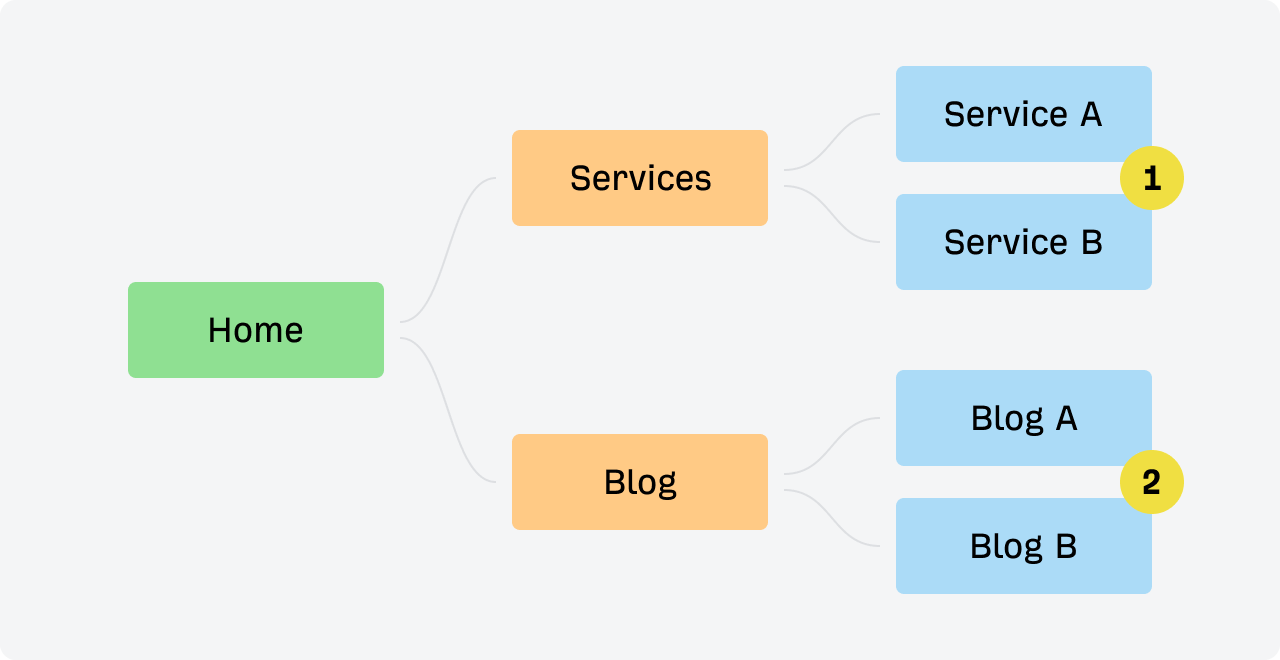
Create landing pages for services
Examples: watch repair, jewelry appraisal, ring sizingAnswer questions with blog posts
Examples: how to pick engagement ring, who buys the man wedding band
Learn more: SEO Content: The Beginner’s Guide
Link building
Backlinks are clickable links from one website to another. As they're one of Google's strongest ranking factors, getting more high-quality backlinks typically leads to higher rankings and more organic traffic.
In fact, you'll almost always need backlinks to rank for competitive keywords.
For example, the query "how much should a man spend on engagement ring" has a Keyword Difficulty (KD) score of 50 out of 100. As this is quite high, you'll almost certainly need backlinks to rank on the first page for this term.
Unfortunately, link building is one of the most challenging aspects of SEO. But there are tried and tested tactics you can use to get them.
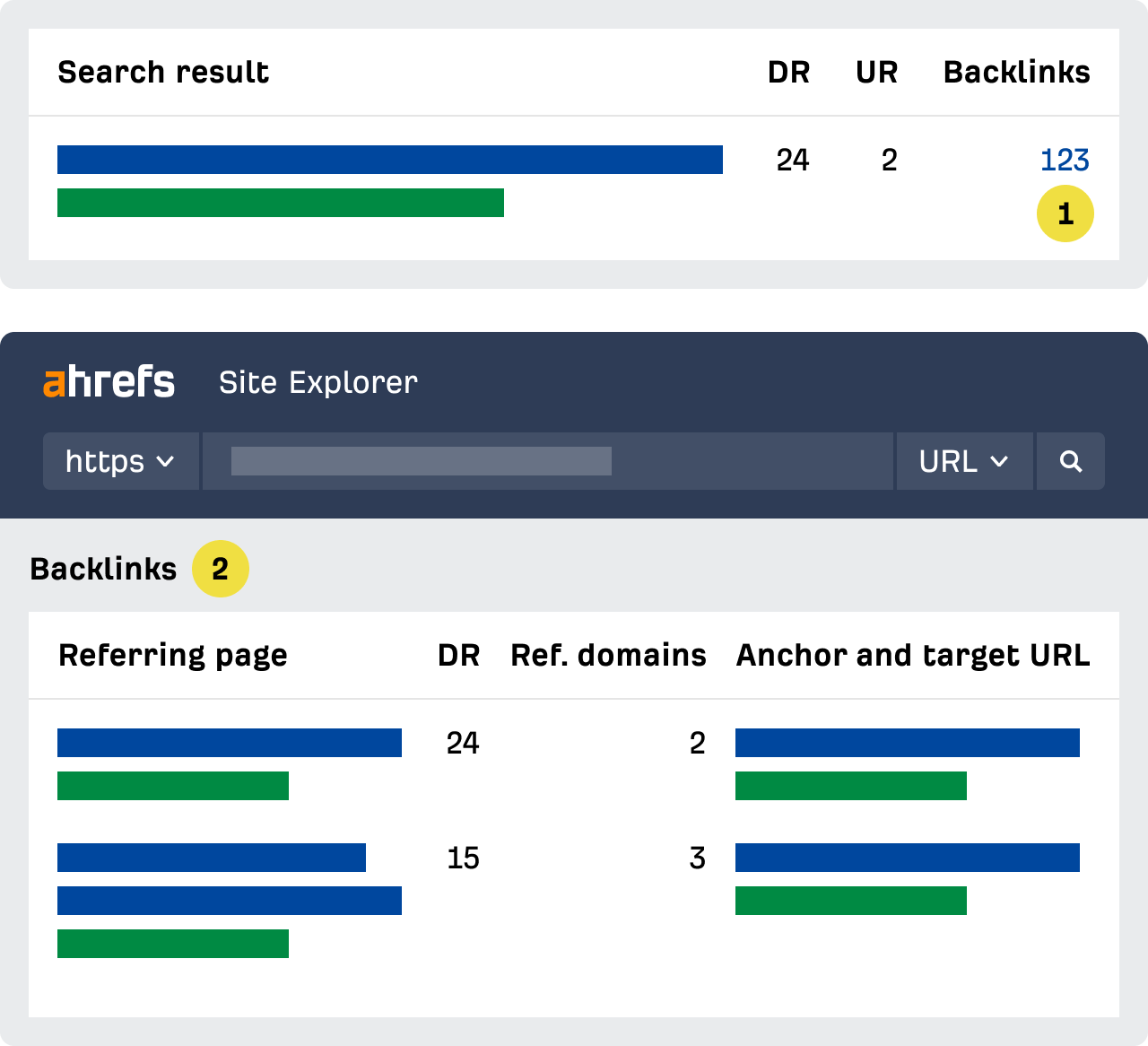
Look at the top 10 ranking pages for your target keyword
Search for your keyword in Google, or check the SERP overview in Keywords Explorer.Find their backlinks
Enter their URLs into Site Explorer and check the Backlinks report.Find replicable backlinks
Look for links you can easily replicate for your website, and think about how you could get more links like them.
Learn more: The Beginner’s Guide to Link Building
Technical SEO
Everything above is a waste of time unless Google can find, crawl and index your pages. That's because it's impossible for them to show up in search unless they're in the index.
For example, say you wrote a post about wedding bands to target the keyword "what is a wedding band." Even if it's the most useful guide to the topic on the web, Google won't index the page if it contains this code: <meta name="robots" content="noindex" />
Luckily, it's quite unlikely that the pages you create for search will contain that code. But there are plenty of other common technical issues that can hinder the performance of your pages in search.
You can find these issues by regularly auditing your site.
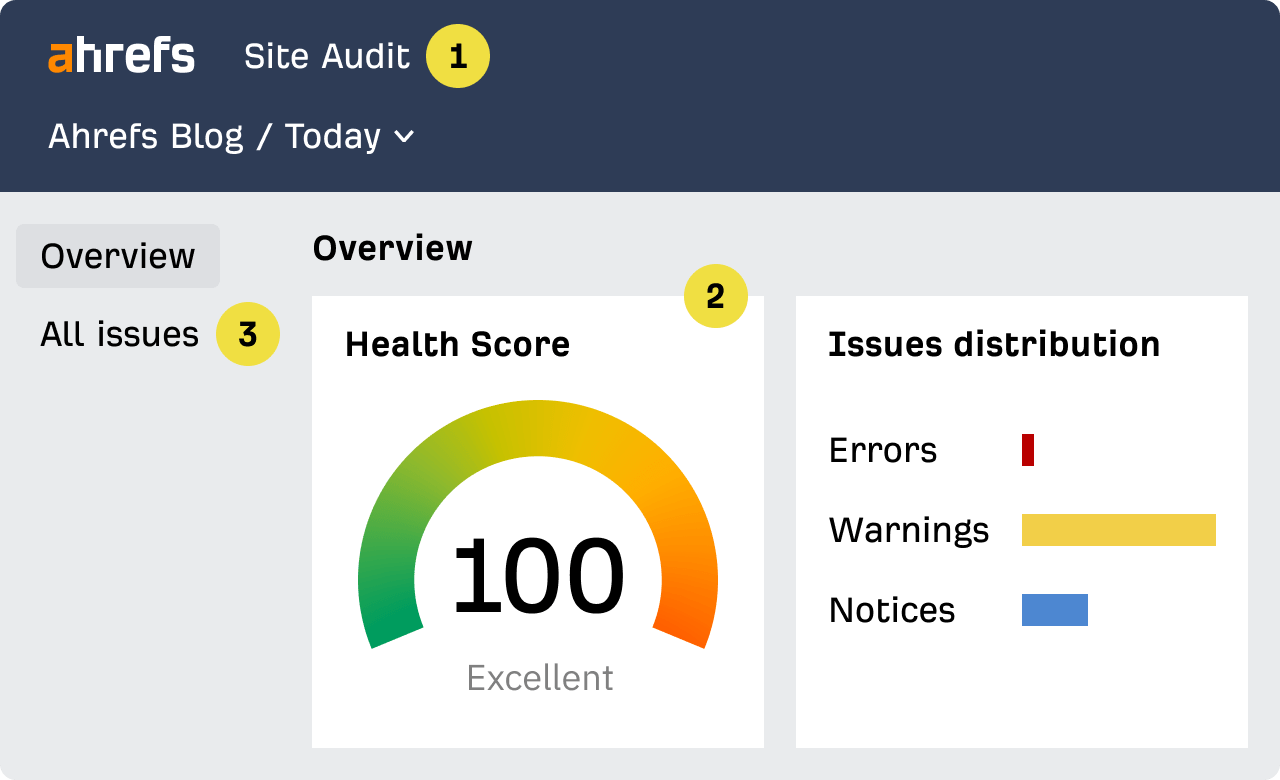
Audit your website.
Get a free Ahrefs Webmaster Tools account and crawl your site with Site Audit.Check your Health Score.
Get a sense of your site's overall SEO health.Investigate and fix technical issues.
Delve into individual issues and fix them.
Learn more: The Beginner’s Guide to Technical SEO